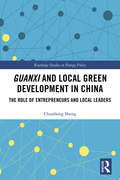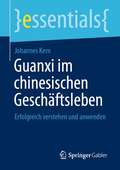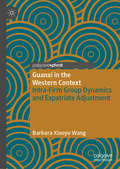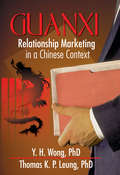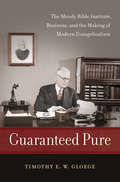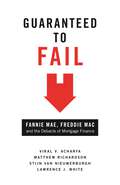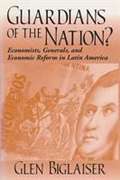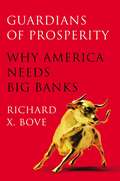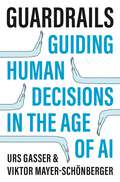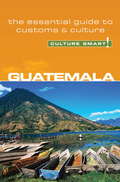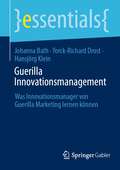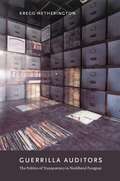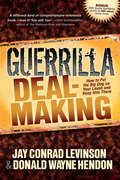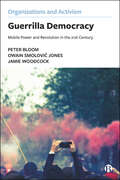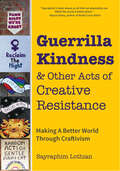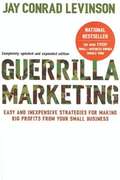- Table View
- List View
Guanxi and Local Green Development in China: The Role of Entrepreneurs and Local Leaders (Routledge Studies in Environmental Policy)
by Chunhong ShengThis book examines the factors which contribute to local green development in China and employs political ecology to analyze the relationship between power and the environment. Specifically, it looks at which actors control access to resources and are therefore able to promote environmental progress. Following the reform and opening-up of China in the 1970s, entrepreneurs and local officials profited economically and politically and formed close relationships, known as guanxi in China. As a result, they have also been criticized as those responsible for the associated ecological damage. This book does not contest this association, but instead argues that the current literature places too much emphasis on their negative influence and the positive influence of their environmental work has been neglected. Building on three case studies where local green development is being pursued, Shanghai Pudong New Area, Baoding, and Wuning, this book shows how local officials and entrepreneurs can also be the crusaders of a greener environment at the local level in China. This book will be of great interest to students and scholars of Chinese studies, with a particular interest in environmental policy and politics, business and society, as well as those interested in sustainable development more broadly.
Guanxi im chinesischen Geschäftsleben: Erfolgreich verstehen und anwenden (essentials)
by Johannes KernChinesische Geschäftspraktiken drehen sich um spezielle, persönliche Beziehungen, genannt Guanxi. In diesem essential wird die Frage beantwortet, was Guanxi ist, aus welchen Bausteinen das Phänomen besteht und welche Vorteile, aber auch Kosten damit verbunden sein können. Es wird diskutiert, ob Guanxi mit Korruption gleichzusetzen ist und ob Guanxi wirklich kulturell einzigartig ist. Da China seine globale Präsenz weiter ausbaut, zunehmend zum geografischen Mittelpunkt der Weltwirtschaft wird und – anders als früher vermutet – im Zuge seiner Modernisierung nicht automatisch westliche Geschäftspraktiken übernimmt, ist es gerade für Deutschland als „Chinas engem Partner in einer sich rasch wandelnden Welt“ wichtig, sich differenziert mit dem Phänomen Guanxi im Geschäftsleben auseinanderzusetzen.
Guanxi in the Western Context: Intra-Firm Group Dynamics and Expatriate Adjustment
by Barbara Xiaoyu WangDeeply rooted in Chinese culture, the concept of guanxi has been widely researched from historical, cultural and political perspectives. As Chinese multinational corporations (MNCs) expand, expatriates are increasingly carrying guanxi with them to host countries, yet little has been written on how this indigenous construct is employed in the Western world. This book takes a theoretical approach to the examination of this phenomenon and proposes a conceptual framework for the ‘guanxi capitalism structure,’ illustrating its fundamental role as the invisible hand in China. Providing empirical analysis, the author demonstrates how guanxi affects intra-firm multicultural group dynamics involving Chinese expatriates and host-country natives in Chinese MNCs. With insights for scholars researching Asian business and globalisation, and practitioners working in Chinese MNCs, this book argues that guanxi significantly alters an expatriate’s adjustment, and offers practical suggestions for cross-cultural management and the process of initiating, building, and utilising guanxi in a Western context.
Guanxi: Relationship Marketing in a Chinese Context
by Thomas Leung Erdener Kaynak Y.H. WongDevelop a network of successful business relationships in China!This systematic study of the Chinese concept of guanxi--broadly translated, ”personal relationship” or ”connections”--offers a comprehensive social and professional model for doing business in China. In addition to a clear analysis of the origins and meanings of this vital concept, Guanxi: Relationship Marketing in a Chinese Context empowers you with practical tools for establishing guanxi in order to facilitate successful business relationships. Guanxi is based on an original research study as well as the authors’twenty years of experience of doing business in China. Their understanding of the implications of face, favor, reciprocity, honor, and interconnectedness--all vital parts of guanxi--will enable you to understand the unstated assumptions of Chinese business culture. Moreover, the book discusses the legal implications of guanxi as well as cultural expectations.This valuable handbook offers a wealth of information on guanxi: case studies of guanxi in action managerial implications of saving face and reciprocity measuring guanxi quality and performance indicators step-by-step instructions for building guanxi detailed strategies for penetrating the Chinese marketGuanxi is an indispensable tool for anyone wanting to do business in China, for students of international business or Chinese culture, and for scholars interested in international business culture.
Guaranteed Pure: The Moody Bible Institute, Business, and the Making of Modern Evangelicalism
by Timothy GloegeAmerican evangelicalism has long walked hand in hand with modern consumer capitalism. Timothy Gloege shows us why, through an engaging story about God and big business at the Moody Bible Institute. Founded in Chicago by shoe-salesman-turned-revivalist Dwight Lyman Moody in 1889, the institute became a center of fundamentalism under the guidance of the innovative promoter and president of Quaker Oats, Henry Crowell. Gloege explores the framework for understanding humanity shared by these business and evangelical leaders, whose perspectives clearly differed from those underlying modern scientific theories. At the core of their "corporate evangelical" framework was a modern individualism understood primarily in terms of economic relations.Conservative evangelicalism and modern business grew symbiotically, transforming the ways that Americans worshipped, worked, and consumed. Gilded Age evangelicals initially understood themselves primarily as new "Christian workers--employees of God guided by their divine contract, the Bible. But when these ideas were put to revolutionary ends by Populists, corporate evangelicals reimagined themselves as savvy religious consumers and reformulated their beliefs. Their consumer-oriented "orthodoxy" displaced traditional creeds and undermined denominational authority, forever altering the American religious landscape. Guaranteed pure of both liberal theology and Populist excesses, this was a new form of old-time religion not simply compatible with modern consumer capitalism but uniquely dependent on it.
Guaranteed to Fail: Fannie Mae, Freddie Mac, and the Debacle of Mortgage Finance
by Lawrence J. White Viral V. Acharya Matthew Richardson Stijn van NieuwerburghWhy America's public-private mortgage giants threaten the world economy—and what to do about itThe financial collapse of Fannie Mae and Freddie Mac in 2008 led to one of the most sweeping government interventions in private financial markets in history. The bailout has already cost American taxpayers close to $150 billion, and substantially more will be needed. The U.S. economy--and by extension, the global financial system--has a lot riding on Fannie and Freddie. They cannot fail, yet that is precisely what these mortgage giants are guaranteed to do. How can we limit the damage to our economy, and avoid making the same mistakes in the future?Guaranteed to Fail explains how poorly designed government guarantees for Fannie Mae and Freddie Mac led to the debacle of mortgage finance in the United States, weighs different reform proposals, and provides sensible, practical recommendations. Despite repeated calls for tougher action, Washington has expanded the scope of its guarantees to Fannie and Freddie, fueling more and more housing and mortgages all across the economy--and putting all of us at risk. This book unravels the dizzyingly immense, highly interconnected businesses of Fannie and Freddie. It proposes a unique model of reform that emphasizes public-private partnership, one that can serve as a blueprint for better organizing and managing government-sponsored enterprises like Fannie Mae and Freddie Mac. In doing so, Guaranteed to Fail strikes a cautionary note about excessive government intervention in markets.
Guaranty Trust Bank PLC Nigeria (A)
by Lynn Sharp Paine Harold F. Hogan Jr.Fola Adeola, the CEO of Nigeria's Guaranty Trust Bank and one of its founders in 1991, is considering what should be done to maintain the bank's original vision and vitality in the face of its rapid growth and success in the marketplace. Known for its high ethical standards, the bank is planning to expand inside and outside Nigeria. Among Adeola's concerns is what to do about employees' insistence on underpaying their personal income taxes--a practice he regards as inconsistent with the bank's mission of being a role model for society. A rewritten version of an earlier case.
Guardians Of The Nation?: Economists, Generals, and Economic Reform in Latin America (Kellogg Institute Series on Democracy and Development)
by Glen BiglaiserCentral to the question of how to promote economic growth in Latin America is the role different types of regimes play in determining economic performance. Guardians of the Nation? challenges conventional wisdom regarding the expected advantages of military rule for economic growth. Glen Biglaiser explains why many military regimes in Latin America have not performed noticeably better than their democratic counterparts. <P><P>Biglaiser argues that economic policy-making under military regimes is essentially an unintended by-product of the military's strategy to retain power. Using this premise, he examines the economic performance of regimes in Argentina, Chile, and Uruguay. Biglaiser shows that the appointment of neoliberal economists occurred not because military rulers possessed inherent interest in following market-oriented policies, but because they saw the appointments as a way to solidify their power. <P><P>Biglaiser's study also depicts Pinochet's one-man rule as unique vis-a-vis the military regimes in Argentina and Uruguay. He concludes by demonstrating that his study is also applicable for understanding economic policy choice under democratic rule, and by comparing the similarities and differences between presidential and parliamentary governments.
Guardians of Finance: Making Regulators Work for Us
by James R. Barth Gerard Caprio Ross LevineThe recent financial crisis was an accident, a "perfect storm" fueled by an unforeseeable confluence of events that unfortunately combined to bring down the global financial systems. And policy makers? They did everything they could, given their limited authority. It was all a terrible, unavoidable accident. Or at least this is the story told and retold by a chorus of luminaries that includes Timothy Geithner, Henry Paulson, Robert Rubin, Ben Bernanke, and Alan Greenspan. In Guardians of Finance, economists James Barth, Gerard Caprio, and Ross Levine argue that the financial meltdown of 2007 to 2009 was no accident; it was negligent homicide. They show that senior regulatory officials around the world knew or should have known that their policies were destabilizing the global financial system, had years to process the evidence that risks were rising, had the authority to change their policies--and yet chose not to act until the crisis had fully emerged. The current system, the authors write, is simply not designed to make policy choices on behalf of the public. It is virtually impossible for the public and its elected officials to obtain informed and impartial assessment of financial regulation and to hold regulators accountable. Barth, Caprio, and Levine propose a reform to counter this systemic failure: the establishment of a "Sentinel" to provide an informed, expert, and independent assessment of financial regulation. Its sole power would be to demand information and to evaluate it from the perspective of the public--rather than that of the financial industry, the regulators, or politicians.
Guardians of Finance: Making Regulators Work for Us (The\mit Press Ser.)
by James R. Barth Gerard Caprio Ross LevineHow the unaccountable, unmonitorable, and unchecked actions of regulators precipitated the global financial crisis; and how to reform the system. The recent financial crisis was an accident, a “perfect storm” fueled by an unforeseeable confluence of events that unfortunately combined to bring down the global financial systems. Or at least this is the story told and retold by a chorus of luminaries that includes Timothy Geithner, Henry Paulson, Robert Rubin, Ben Bernanke, and Alan Greenspan. In Guardians of Finance, economists James Barth, Gerard Caprio, and Ross Levine argue that the financial meltdown of 2007 to 2009 was no accident; it was negligent homicide. They show that senior regulatory officials around the world knew or should have known that their policies were destabilizing the global financial system and yet chose not to act until the crisis had fully emerged.Barth, Caprio, and Levine propose a reform to counter this systemic failure: the establishment of a “Sentinel” to provide an informed, expert, and independent assessment of financial regulation. Its sole power would be to demand information and to evaluate it from the perspective of the public—rather than that of the financial industry, the regulators, or politicians.
Guardians of Prosperity
by Richard X. BoveSince the financial crisis, amid outrage at the likes of Citigroup and JPMorganChase and Washington’s rejiggering of the financial system, the banking industry has had one major defender: Richard X. Bove. Now he explains why big banks are the nation’s lifeline to success, and why financial disaster will ensue if we make it impossible for them to fill their role in the economy. Bove argues that big banks are necessary to ensure America’s position in global finance; to assist corporations in achieving their goals against foreign competition; and, most importantly, to defend the average household’s access to financial services. Limiting the major banks, he shows, is an attack on our future growth. Bove offers ways to improve the economy’s stability, including allowing some banks to be "too big to fail” and lessening the demand on liquidity so they won’t need to sell existing loans. His main argument, that we need to stop fighting our greatest guardians of prosperity, is sure to be controversial. .
Guardrails: Guiding Human Decisions in the Age of AI
by Viktor Mayer-Schönberger Urs GasserHow society can shape individual actions in times of uncertaintyWhen we make decisions, our thinking is informed by societal norms, &“guardrails&” that guide our decisions, like the laws and rules that govern us. But what are good guardrails in today&’s world of overwhelming information flows and increasingly powerful technologies, such as artificial intelligence? Based on the latest insights from the cognitive sciences, economics, and public policy, Guardrails offers a novel approach to shaping decisions by embracing human agency in its social context.In this visionary book, Urs Gasser and Viktor Mayer-Schönberger show how the quick embrace of technological solutions can lead to results we don&’t always want, and they explain how society itself can provide guardrails more suited to the digital age, ones that empower individual choice while accounting for the social good, encourage flexibility in the face of changing circumstances, and ultimately help us to make better decisions as we tackle the most daunting problems of our times, such as global injustice and climate change.Whether we change jobs, buy a house, or quit smoking, thousands of decisions large and small shape our daily lives. Decisions drive our economies, seal the fate of democracies, create war or peace, and affect the well-being of our planet. Guardrails challenges the notion that technology should step in where our own decision making fails, laying out a surprisingly human-centered set of principles that can create new spaces for better decisions and a more innovative and prosperous society.
Guatemala - Culture Smart!
by Lisa VaughnCulture Smart! provides essential information on attitudes, beliefs and behavior in different countries, ensuring that you arrive at your destination aware of basic manners, common courtesies, and sensitive issues. These concise guides tell you what to expect, how to behave, and how to establish a rapport with your hosts. This inside knowledge will enable you to steer clear of embarrassing gaffes and mistakes, feel confident in unfamiliar situations, and develop trust, friendships, and successful business relationships.Culture Smart! offers illuminating insights into the culture and society of a particular country. It will help you to turn your visit-whether on business or for pleasure-into a memorable and enriching experience. Contents include* customs, values, and traditions* historical, religious, and political background* life at home* leisure, social, and cultural life* eating and drinking* do's, don'ts, and taboos* business practices* communication, spoken and unspoken"Culture Smart has come to the rescue of hapless travellers." Sunday Times Travel"... the perfect introduction to the weird, wonderful and downright odd quirks and customs of various countries." Global Travel"...full of fascinating-as well as common-sense-tips to help you avoid embarrassing faux pas." Observer"...as useful as they are entertaining." Easyjet Magazine"...offer glimpses into the psyche of a faraway world." New York Times
Gucci Group N.V. (A)
by David B. Yoffie Mary KwakExamines the turnaround of Gucci and its transition from a single brand to a multi-brand company. A rewritten version of an earlier case.
Gucci Group in 2009
by David B. Yoffie Renee KimThe Gucci Group had transformed itself into the world's third largest luxury retailer with multiple brands. The company had performed well even after the departure of star designer Tom Ford and former CEO Domenico De Sole. However, the challenging global economic times in 2009 raised the question whether it was time, again, to re-adjust Gucci's portfolio, especially as YSL continued to lose money.
Gucci Group: Freedom within the Framework
by Elena Corsi F. Asis Martinez-Jerez Vincent DessainGucci Group's CEO had to decide if his decentralized management style was the most effective philosophy in an economic downturn. The sharing of customer information across units and its use in the creative process are key initiatives analyzed in the case. CEO Robert Polet joined the high-end fashion Gucci Group in 2004, after 26 years at one of the largest consumer goods companies. Since his arrival, the Group had grown both in revenues and profitability. Part of his secret was his decentralized and empowering management style. In 2008, in the midst of the economic downturn following the credit crunch crisis, Polet learned that after four years of growth the Gucci brand-the Group's largest business-would report a slowdown for the year's first semester. He knew that according to his management philosophy he should leave the primary decisions for the Gucci brand to Gucci's CEO. Yet, given the urgency of the situation, Polet wondered if it would be more effective to become directly involved in the brand's decision-making process. To anchor the discussion on Polet's management style, the case discusses how customer information is used in the creative process and whether it would be beneficial for the group to share customer information across stores, regions, and brands.
Guerilla Innovationsmanagement: Was Innovationsmanager von Guerilla Marketing lernen können (essentials)
by Johanna Bath Yorck-Richard Drost Hansjörg KleinDie meisten Innovationsprojekte in Unternehmen scheitern nicht am Mangel an Ideen, Kreativität oder am Umsetzungswillen, sondern an vielen kleinen Hürden, die die Projekte massiv entschleunigen. So verlieren Initiativen an der Dynamik, die dafür sorgt, dass sich zügig Erfolge einstellen. Ein Bereich, in dem unkonventionell, agil und schnell Ergebnisse erzielt werden, ist das Guerilla Marketing. Was können Innovations-, Forschungs- und Projektleiter aus dem Methodenbaukasten lernen? Wie können konkrete Taktiken aus dem Marketing auch Innovationsprojekten zu mehr Viralität und Schwung verhelfen, um die Eigendynamik der Initiativen „unbremsbar“ zu machen? Das erfahren Sie in diesem essential.
Guerrilla Auditors: The Politics of Transparency in Neoliberal Paraguay
by Kregg HetheringtonGuerrilla Auditors is an ethnographic account of the rise of information, transparency, and good governance in the post-Cold War era, and the effects of these concepts on Paraguay's transition to democracy. Kregg Hetherington shows that the ideal of transparent information, meant to depoliticize bureaucratic procedures, has become a battleground for a new kind of politics centered on legal interpretation and the manipulation of official documents. In late-twentieth-century Paraguay, peasant land politics moved unexpectedly from the roads and fields into the documentary recesses of state bureaucracy. When peasants, bureaucrats, and development experts encountered one another in state archives, conflicts ensued about how bureaucracy ought to function, what documents are for, and who gets to narrate the past and the future of the nation. Hetherington argues that Paraguay's neoliberal democracy is predicated, at least in part, on an exclusionary distinction between model citizens and peasants. Despite this, peasant activists have found ways to circumvent their exclusion and in so doing question the conceptual foundations of international development orthodoxy.
Guerrilla Business Secrets: 58 Ways to Start, Build, and Sell Your Business
by Jay Conrad Levinson Steve SavageFrom a master salesperson and a revolutionary marketing strategist: A take-no-prisoners guide to making your small business dreams come true. Do you long to break out of the corporate rate race and run your own business? Jay Conrad Levinson, author of the bestselling Guerrilla Marketing series, and Steve Savage, management consultant and salesman extraordinaire, team up to show you how in this truly captivating guide. By learning from Steve&’s desolate disasters and tremendous triumphs, you will gain the knowledge you need to start and run a business—covering every facet from picking a hot product to navigating government bureaucracy to expanding overseas. Learn how Steve develops dazzling products, builds successful sales forces, and once took a company from zero to $60 million in six years. Guerrilla Business Secrets tells how hundreds of men and women trained by Steve were able to fulfill their dreams and stretch to the outer limits of their potential. &“I have never seen anyone who could organize a business, recruit a sales force, and motivate an entire company better than Steve Savage. He is a genuine business visionary.&” —Rod Turner, Senior Executive Vice President, Colgate Palmolive
Guerrilla Deal-Making: How to Put the Big Dog on Your Leash and Keep Him There (Guerilla Marketing Press)
by Jay Conrad Levinson Donald Wayne HendonSecrets that empower small business owners to take on the big dogs: “You will become a better deal-maker by reading this book.” —Jim Cathcart, author of Relationship SellingJay Conrad Levinson’s Guerrilla books have sold over thirty million copies—because he knows how individuals and small businesses can thrive even without unlimited financial resources. In this book, he and experienced international consultant Donald Wayne Hendon team up to share one hundred very powerful tactics to empower you in any negotiating situation—whether it’s conducting day-to-day business, buying and selling, or dealing with a boss, a local politician, a homeowners’ association, an insurance company, or bureaucrats at City Hall.“A comprehensive reference book that tells you when to be assertive, when to go on the defense, when to cooperate, and how to handle dirty tricks. I love it!” —Tony Alessandra, author of The Platinum Rule
Guerrilla Democracy: Mobile Power and Revolution in the 21st Century (Organizations and Activism)
by Peter Bloom Owain Smolović JonesThe liberating promise of big data and social media to create more responsive democracies and workplaces is overshadowed by a nightmare of election meddling, privacy invasion, fake news and an exploitative gig economy. Yet, while regressive forces spread disinformation and hate, 'guerrilla democrats' continue to foster hope and connection through digital technologies. This book offers an in-depth analysis of platform-based radical movements, from the online coalitions of voters and activists to the Deliveroo and Uber strikes. Combining cutting edge theories with empirical research, it makes an invaluable contribution to the emerging literature on the relationship between technology and society.
Guerrilla Kindness & Other Acts of Creative Resistance: Making A Better World Through Craftivism
by Sayraphim Lothian# 1 Best Seller in Crafts & Hobbies, Stenciling - Resistance CraftsCraftivism can be your voice of resistance: Craftivism is a non-threatening form of activism that gives people a voice when they feel voiceless and power where they feel powerless. It is an international movement for our time and noted Craftivism expert Sayraphim Lothian has put together the first-ever tutorial book on craftivism.In Guerilla Kindness: artist, scholar, activist, and YouTube art teacher Sayraphim Lothian gives you an introduction to the art of craftivism, and provides a brief history of creative resistance. This master craftivist shows you how to make and use various crafts for political and protest purposes including:EmbroideryCross stitchKnittingStencilingDecoupageStampingand much moreJoin us in the Craftivism movement: Craftivism is a growing worldwide movement in which hand crafted works are being used to highlight political issues, creatively engage in activism, and encourage change in the world. Craftivists employ their works to open a space for people to be introduced to issues and to broaden the discussion surrounding them. While it might seem that this most colorful movement began recently, creative resistance has been with us for centuries around the globe, and craftivism and makers stating their mind through the medium of art is here to stay.
Guerrilla Marketing (Fourth Edition)
by Jay Conrad LevinsonWhen Guerrilla Marketing was first published in 1983, Jay Levinson revolutionized marketing strategies for the small-business owner with his take-no-prisoners approach to finding clients. Based on hundreds of solid ideas that really work, Levinson’s philosophy has given birth to a new way of learning about market share and how to gain it. In this completely updated and expanded fourth edition, Levinson offers a new arsenal of weaponry for small-business success including* strategies for marketing on the Internet (explaining when and precisely how to use it)* tips for using new technology, such as podcasting and automated marketing * programs for targeting prospects and cultivating repeat and referral business* management lessons in the age of telecommuting and freelance employeesGuerrilla Marketing is the entrepreneur’s marketing bible -- and the book every small-business owner should have on his or her shelf.
